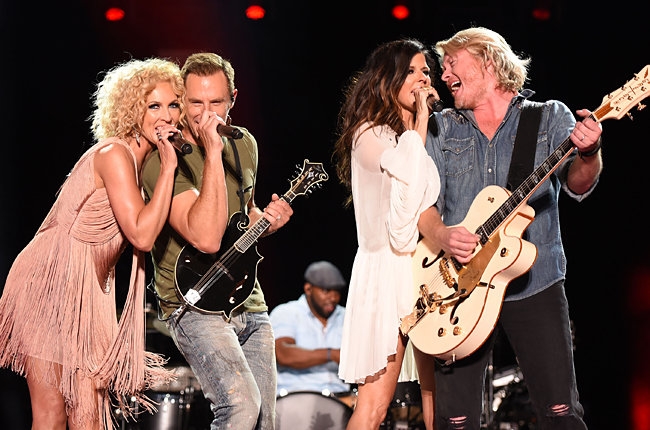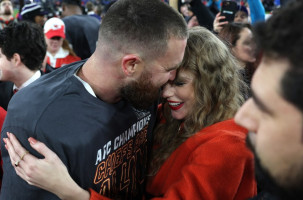When Mandy Barnett finished her set on July 20 at Nashville’s 3rd & Lindsley, she enjoyed a post-show luxury that most country artists rarely experience: She slept in her own bed.
It was the second of four Thursday-night appearances for Barnett in a one-month residency, and that bit of normalcy -- do your job, return to your own house -- is one of the perks of that arrangement.
“Going out on the road is tiresome,” says Barnett. “The traveling, and being in hotel rooms, and having to ride in the car, get on a plane -- it just wears you out. I feel like doing that is fun, but there’s something great about being able to stay home.”
An increasing number of Music City acts are following that path, playing residencies of varying lengths in their hometown. Charlie Worsham is in the middle of a five-week run, Every Damn Monday, at Basement East that concludes July 31; The Time Jumpers, regulars at 3rd & Lindsley, mark their 20th anniversary of weekly Monday-night shows next year; and Little Big Town delivers the third batch of concerts in its intermittent 10-show residency at the Ryman Auditorium July 28-30.
“Everything about it is wonderful,” says group member Kimberly Schlapman. “The crew loves that they get to set up all our stage gear on a fixed stage for three days. Also, the backstage area becomes so homey and comfortable because we’re set up there. It already has such charm. The fact we get to make it our home for more than one night at a time feels super good.”
But there are other reasons to do multiple engagements down the road from your house. Community is a big one. All the residencies have featured surprise guests: Charles Kelley and Wheeler Walker Jr. at Worsham’s shows, Reba McEntire and Joe Walsh at The Time Jumpers’, Country Music Hall of Fame member Charlie McCoy and budding singer-songwriter Sam Hunter at Barnett’s and Luke Bryanand Chris Stapleton at LBT’s.
Musicianship benefits, too, as Worsham discovered by booking multinight stays at Nashville clubs in 2015 and 2016. “Residencies,” he says, “are great for your chops.”
That was one of the biggest reasons that steel guitarist Paul Franklin, one of the city’s most in-demand session players, joined The Time Jumpers nearly 10 years ago. Since Shania Twain broke in the 1990s, producers have increasingly used steel for atmospheric sounds and shorter riffs. Franklin adapted to the change but wanted other ways to challenge himself and sharpen his creative muscle.
“I love what’s going on in the studio -- I don’t mean to paint a dark picture -- but for me, playing a steel guitar, I wanted to always hone my chops in case some guy came into town and was like a Conway Twitty or [to play on] a Vince Gill record,” says Franklin. “I wanted to be sure that I maintained those skills, so I was always just practicing at home. Now I don’t have to practice. I’ve got this Monday-night gig where I can hone those skills.”
Residencies were typically relegated in the past to unsigned, developing acts looking to catch a break. Craig Campbell, Ronnie Milsap, Rascal Flatts and Lonestar were among those who served as the house band in hotels or bars in downtown Nashville before they reached national stature. Residencies for national acts mostly took place in Las Vegas, where lengthy contracts were given to the likes of Frank Sinatra, Tom Jones and Elvis Presley. But in recent years, core country artists began to take advantage of the Strip, too, with lengthy bookings for Twain, Garth Brooks, Tim McGraw & Faith Hill, and McEntire with Brooks & Dunn. As Nashville has moved up on the destination map, it makes increasing sense for artists with some sort of national presence to book multiple dates at a hometown venue where they might attract a mix of locals and visitors.
“We’ve become like New York and Chicago and Los Angeles,” says Franklin. “We have so much tourism here that’s thriving, and in Nashville’s case, our tourism’s still based around the music. We have a lot of [attractions] here, but a good portion of them are interested in seeing music while they’re here, so the residencies -- and we’re certainly one of them -- benefit from that.”
While vacationers make a difference, artists have a bit of a pact with the locals. Most of the residencies take place on weeknights, and they tend to start at 7 p.m. or 8 p.m., times better suited for working-class folks than late club hours.
“You can let the dog out or just go straight from work and have dinner and see a show and be home by 9:30,” says Barnett. “A lot of people like to go out during the week rather than on the weekends. It’s easier to get a table, have a place to park, that kind of thing. It won’t be as stressful as going out on a Saturday night.”
Mondays, in fact, may be the most ideal night to establish a residency. It’s the slowest night of the week for most venues, which means they take less of a risk by booking an act for multiple shows. Plus, touring artists and their bands are usually in town and unscheduled after a weekend of one-nighters.
“I’ve been talking with musician friends who want to do just a jam night on Mondays, because it’s musicians’ Saturday night,” says Worsham. “Whoever’s in town and can make it, does. It’s a rotating cast of characters. We play songs we love. It’s just good for community, it’s good for musicianship.” He also notes that it’s a good opportunity for casual networking.
And because an extended run practically requires artists to change up their sets, the residency provides an opportunity for singular performances. That’s particularly true at the Ryman, where the venue has made Little Big Town feel at home both physically and creatively: Schlapman says that sometimes the quartet will stand at the end of the stage without microphones and do a song a cappella.
“We can’t do that anywhere else than at the Ryman,” she says. “It’s such a reverent place, and people are so respectful that they will be totally silent while that happens, and also the acoustics in that place are so beautiful and magical that it works there, and that voices do carry. You can’t do that in most other places.”
And in most other places, they also can’t drive home and sleep at their own house.








